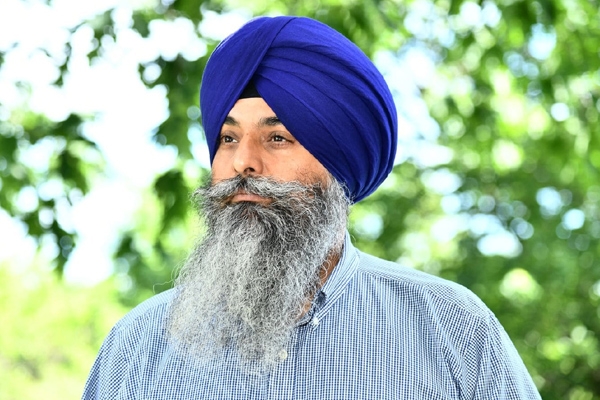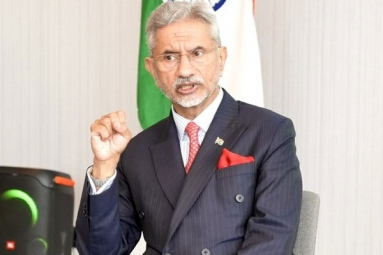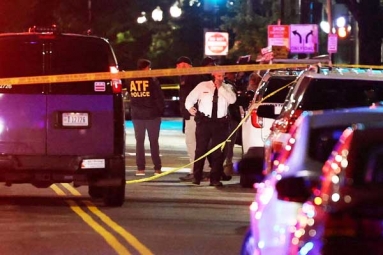Sikh School Bus Driver in Maryland Report Years of Harassment over His Turban and Beard
May 28, 2019 12:20
(Image source from: The Washington Post)
A Sikh school bus driver in Suburban Maryland, Sawinder Singh, said he was targeted for the way he looked over years. While some called him a terrorist, others taunted that he was Osama Bin Laden.
The harassment came from co-workers, supervisors, and students, he said. One day while driving the roads of Montgomery County, he missed a turn, only to have a large group of middle-schoolers aboard shout that he was kidnapping them.
“The driver is going to blow up the bus!” he recalls them yelling.
But 13 years into his career with the county school system, Singh, 45, is turning a page on those experiences, as his lawyers and school officials settle issues raised in a complaint filed with the federal Equal Employment Opportunity Commission in 2016.
The agreement, expected to be announced Tuesday, includes efforts to improve cultural education and training on recognizing bias, which Singh said he hopes will lead to a greater understanding among employees and students of Sikhs and other religious minorities in the diverse school system.
His attorneys assert the case could have a broad reach nationally, given Montgomery’s stature as one of the country’s largest and most well-regarded school systems.
“If a school district of its caliber is doing this, then other districts will take notice,” said Amrith Kaur, legal director for the Sikh Coalition, a civil rights organization representing Singh. “I hope that it’s a wake-up call for other districts and for other employers.”
Kaur’s organization, which has represented hundreds of hate-crime clients over the past 18 years, says that Sikhs in America are hundreds of times more likely than the average American to experience bias. Many are targeted because of their skin color, turbans, uncut hair, and religious faith.
“This is an issue that continues to grow, and it’s not going away,” Kaur said.
School system officials said in a statement they investigated each allegation Singh made and took “swift corrective action” with staff members and students who engaged in offensive behavior.
They said they are committed to providing a safe and welcoming environment, citing training efforts on cultural proficiency and implicit bias, along with broader efforts to address hate-based incidents in schools.
In response to incidents cited by Singh, school officials said they conducted face-to-face training on workplace bullying among transportation department workers in 2016.
In the beginning, Singh did not want to make waves and did not report incidents, his lawyers say.
“He didn’t do it the first time or the second time or even the fifth time something unfair happened to him,” said Karla Gilbride, a senior attorney with Public Justice, a public interest legal organization that joined the Sikh Coalition on the case in January 2018.
Offensive Comments He Received
According to the EEOC complaint, co-workers in the transportation department called Singh “Osama bin Laden,” “al-Qaeda” and “Taliban.” When bin Laden was killed in 2011, it said, fellow employees, expressed condolences to him as if they were related.
One supervisor threatened to put duct tape on Singh’s beard and pull it off, the document said, and when he said he did not appreciate the joke - and that his hair was an expression of his religion - he was told he lacked a sense of humor.
The complaint lists 21 incidents he said he reported to school officials from 2011 to 2016, each listed with a date.
Starting in 2011, Singh tried to report major incidents of harassment by students in writing, according to the EEOC complaint.
In 2012, it said, a supervisor told him that his efforts to inform students’ schools of their behavior “would ruin students’ education.” The supervisor tried to dissuade him from completing paperwork and said he was too easily offended, according to the document.
In response to the EEOC complaint, school officials said they deny being liable for discrimination but believe “we can and must work together with the community to ensure all students and staff are treated with respect.”
In other allegations, Singh’s EEOC complaint said he was denied opportunities for training and advancement and “required to do less complex work when compared to my non-Sikh, non-South Asian, non-Indian origin colleagues.”
Singh was promoted to bus route supervisor but asserts he was assigned menial tasks. And after the Sikh Coalition advocated on his behalf, the complaint alleged he was retaliated against - written up harshly for dropping two students off at home, rather than at a caregiver’s, after believing their account that a parent’s note had been lost.
He was suspended without pay for 10 days and cited for a “critical offense” that bars promotion for at least three years, the complaint said.
As part of the settlement, the school system will establish a project team to consider changes to training initiatives that would make them more interactive and based in real-life scenarios, and include awareness of the Sikh religion. The two organizations involved in Singh’s case will propose changes that school officials will consider.
The goal is a more systemic approach that includes assessing the climate for students and staff of all ethnicities and religions, and going beyond individual discipline, Singh’s lawyers said.
The agreement also includes expanded career opportunities for Singh, including the chance to work under a mentor and transfer to another bus depot. Singh’s attorneys declined to discuss any potential financial compensation in the settlement.
By Sowmya Sangam







